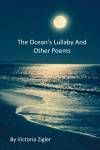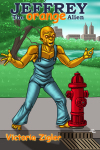A.L. Butcher's Blog, page 151
September 18, 2016
Author Interview 115 – Jamela
Welcome to Jamela.
Where are you from and where do you live now? I am originally from South Carolina, but live in the Atlanta Georgia metro.
Please tell us a little about your writing – for example genre, title, etc. I write both nonfiction and fiction. I prefer fiction short stories. My latest release is the final part of a series called Kidnapped in Love2:Backfire.
Where do you find inspiration? I can find a story in anything. A phrase, a picture, a memory or anything.
Do you have a favourite character? If so why? I do not have a favorite. But, if I had to choose a most admired character, it would have to be, Danielle Steel’s Annabelle Worthington. I love the resilience of Annabelle and the way she succeeded regardless of the obstacles she faced.
Do you have a character you dislike? If so why? There is no character I dislike. However, I have to say that James is the character I feel has the most ruthless traits.
Are your characters based on real people? My characters are never based on real people.
Have you ever used a person you don’t/didn’t like as a character then killed them off? No. Generally, I do not kill of characters. This series is an exception because there are two deaths in the first book.
Research can be important in world-building, how much do you need to do for your books? Do you enjoy this aspect of creating a novel and what are your favourite resources? I enjoy researching and all aspects of it. I am a life-learner so anything I am curious about or do not know is great for me. I use Google to pull up search results. Then I go through and click the scholarly peer-reviewed articles to read. If none of these are available, I use the gov, edu, and professional reference site. I never use about.com, any wiki sites and rarely .com sites.
Is there a message conveyed within your writing? Do you feel this is important in a book? The message conveyed is that the things we do come back to us. I do feel this is important because I hope readers will think about how they treat others.
Sort these into order of importance: Great characters; great world-building; solid plot; technically perfect. Can you explain why you chose this order? (Yes I know they all are important…)
Solid plot
Great characters
Great world-building
Technically perfect
In what formats are your books available? (E-books, print, large print audio) Are you intending to expand these and if not, what is the reason? My books are always available in trade paperback and eBook. I do not do large print or hardcover since I want the books to remain affordable. However, if I get enough requests for other formats from the readers, I will make them available.
Do you self-edit? If so why is that the case? Do you believe a book suffers without being professionally edited? I do self-edit, because I am an editor. However, I have several others read the book before it is made available to the public for sale. I do believe every book should be professionally edited. Someone who is objective and a professional should edit the book. The author is too close to the story and will not see all of the errors. This is the main reason a professional editor should edit any book rather than the author.
Do you think indie/self-published authors are viewed differently to traditionally published authors? Why do you think this might be? I think traditional authors may feel in the back of their mind that self-published authors have either taken the easy way out because they did not want to put in the work to get published by a traditional publishing company.
Do you read work by self-published authors? Yes.
What are your opinions about authors commenting on reviews? How important are reviews? I do believe reviews are extremely important. However, I do not feel authors should dignify reviews by trolls (persons who purposely place only negative reviews). I do feel authors should interact with readers.
When buying a book do you read the reviews? I read one or two reviews. However, the reviews do no weigh in the decision as to whether or not to purchase the book.
What are your reviews on authors reviewing other authors? I feel that authors are uniquely qualified to review a book. As writers, they have a better understanding of how a plot should flow and how characters should be developed.
What experiences can a book provide that a movie or video game cannot? Books tend to give more detail. Movies and games much provide an experience within a specified timeframe. This is not the case with a book and the author is able to really develop he plot and characters to their full potential for the story.
What three pieces of advice would you give to new writers?
Write, write, write
Read, read, read
Never give up
What are your best marketing/networking tips? What are your worst? My best marketing/networking tip is to engage readers/fan/followers/friends and pay attention to what the trends are. Make sure you use social media. My worse tip would have to be don’t worry about marketing/networking.
Most authors like to read, what have you recently finished reading? Did you enjoy it? I recently completed reading the Bible. Yes, I enjoyed it very much.
Can you name your favourite traditionally published author? And your favourite indie/self-published author? My favorite, indie/self-published author is a tossup between Aija M Butler and Karen D. Neal. My favorite Traditional author is James Patterson
What are your views on authors offering free books? I think free books are a good way to exposure readers to an author they may not usually read.
Do you have a favourite movie? I have two favorite movies 1. Oh Brother, Where Art Thou and 2. The Color Purple
Do you have any pets? No.
Can you name your worst job? Do you think you learned anything from the position that you now use in your writing? My worse job was as an inserter for a local newspaper. I learned that the workplace is full of varied personalities and little snatches of conversation rarely tell the whole truth. I use this in my writing to this day.
Can you give us a silly fact about yourself? I love to watch cartoons, Tweety and Sylvester
Book links:
And I Trusted You
Kidnapped in Love
What Is This world coming To?
Run Trilogy (Hit & Run, You Better Run and Who’s Running Now all in one volume) http://amzn.to/2cduZr6
Includes the following:
Hit & Run http://amzn.to/2bZaJIV
You Better Run http://amzn.to/2bR3Adl
Who’s Running Now http://amzn.to/2c7eXvm
“The past finally catches up to Jeff and the running may not be the same.”
AMB Shorts http://amzn.to/2c7e5qy
This is a collection of flash fiction and short stories, quick reads that will keep you on the edge of your seat and then some. Get ready for your action fix to be satisfied. Roll call; betrayal, conspiracy, lies, drama, crime and more. Are all present.
Cruel Intentions http://amzn.to/2bAAErh
Your Love http://amzn.to/2caq4nW
Quickie http://amzn.to/2c3sLrW
Mr. & Mrs. Santiago http://amzn.to/2cdu3mq
Unknown factor http://amzn.to/2c7f9Lo
Family Gathering http://amzn.to/2bzMPpr
Run Trilogy (Hit & Run, You Better Run and Who’s Running Now all in one volume)
website/blog and author links:
Goodreads: http://www.goodreads.com/user/show/9727897-lj-jamela
LinkedIn: https://www.linkedin.com/in/ljthomas1
Facebook: https://www.facebook.com/pages/Jamela/568449613189000
Website: http://info74085.wix.com/jamela


Author Interview 114 – Milton Davis – Sci/fi/Fantasy/Black Fiction
Welcome to Milton Davis

Where are you from and where do you live now? I’m originally from Columbus, Georgia. I currently live in Metro Atlanta, Georgia
Please tell us a little about your writing – for example genre, title, etc. I’m a research and development chemist by training and a science fiction and fantasy writer by choice. I write science fiction, fantasy, steampunk and other types of fantastic fiction based on African/African Diaspora culture, history and tradition.
Where do you find inspiration? I get inspiration from a variety of sources; current event issues, music, art, reading history and other sources. You never know when the muse will strike.
Are your characters based on real people? My characters are very seldom based on real people. I don’t want to piss off anybody I know. I have based a few characters in my historical fiction novels an real people, usually historical figures.
Have you ever used a person you don’t/didn’t like as a character then killed them off?No. That’s a waste of time in my opinion. Besides, I wouldn’t want someone I don’t like to soil the pages of what I do for enjoyment for any reason.
Research can be important in world-building, how much do you need to do for your books? Do you enjoy this aspect of creating a novel and what are your favourite resources? I have a collection of historical reference books where most of my info originates. I also do a lot of research on the internet. I also utilize the Auburn Avenue Research Library archives. They have one of the largest collections of books by and about people of African/African Diaspora descent in the country.
Is there a message conveyed within your writing? Do you feel this is important in a book? Mine is a message of inclusion. It’s simply if you don’t see yourself in something, put yourself there. That’s what I do with my books.
Sort these into order of importance: Great characters; great world-building; solid plot; technically perfect. Can you explain why you chose this order? (Yes I know they all are important…) For me the story is the most important thing. So I would say solid plot, great world-building, technically perfect, great characters.
In what formats are your books available? (E-books, print, large print audio) Are you intending to expand these and if not, what is the reason? My books are available in e-book and print format. I’m considering audio but haven’t made the leap yet.
Do you self-edit? If so why is that the case? Do you believe a book suffers without being professionally edited? I hire editors but I also edit after the editors. I want the editor to look for typos and/or grammatical errors or some logical issues. Other than that don’t touch the story. I self publish so my stories will reach people exactly the way I write them.
Do you think indie/self-published authors are viewed differently to traditionally published authors? Why do you think this might be? We are. There is this belief that you must suffer through the gauntlet of mainstream publishing to be a true writer. That’s bullshit. There also the image that if you’re self publishing it’s because your writing wasn’t good enough for a ‘real’ publisher. That’s bullshit, too.
Do you read work by self-published authors? Yes. As a matter of fact the majority of the books I read are by self publishers, mainly because they are writing the type of books that I’m interested in reading.
What are your opinions about authors commenting on reviews?How important are reviews? Reviews are important but I don’t think writers should comment on them. It sets a bad precedent and can work against the writer. People will be reluctant to not only review but also read a book by a writer if they have to fear retaliation.
When buying a book do you read the reviews? Yes.
What are your reviews on authors reviewing other authors? Another author is just a reader when he or she reads. So they should be allowed to review another writer. In many cases their reviews may be more insightful because they practice the craft.
What experiences can a book provide that a movie or video game cannot? A book is a more immersive experience. It has the room and the time to build a more complete world and draw the reader deeper into the story.
What three pieces of advice would you give to new writers? Write every day, write to finish, and don’t spend forever on the first draft. Writing is revising.
Most authors like to read, what have you recently finished reading? Did you enjoy it? I just finished reading Everfair by Nisi Shawl. It’s an enjoyable alternate history tome.
Can you name your favourite traditionally published author? And your favourite indie/self-published author? My favourite traditionally published author is Charles R. Saunders. My favourite indie author? That’s tough. I’ll say it has to be between Balogun Ojetade and Ronald Jones.
What are your views on authors offering free books? I don’t agree with it except on rare occasions.
Do you have any pets? No.
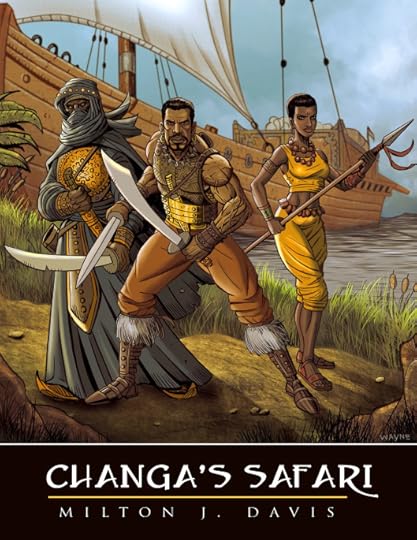
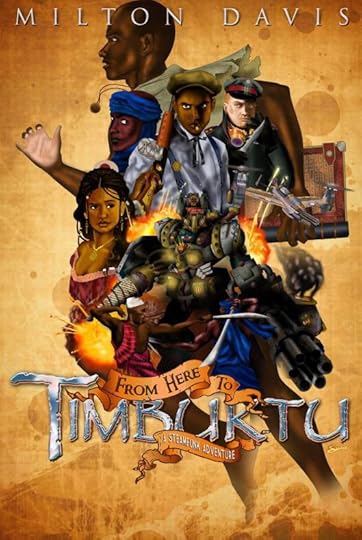


September 17, 2016
Book Promo – ‘Legends of Windemere: Charms of the Feykin’ is Live! — Chris The Story Reading Ape’s Blog
Return to Windemere in Charms of the Feykin! To make a champion fall, one must wound their very soul. Nyx is leading the charge to rescue Delvin and Sari, who have gone missing in the southern jungles of Windemere. Battling through the local predators, the champions are surprised when they reunite in the Feykin city of […]


Why Authors Need to Be as Accessible as Possible — Memoir Notes
Originally posted on A Writer’s Path: ? by Katie McCoach As an author today, you know that every reader is valuable. You love your readers; you want to keep the ones who are loyal and reach new ones. That’s what promotion and growing a business is all about – reaching new consumers. That’s why…
via Why Authors Need to Be as Accessible as Possible — Memoir Notes


September 15, 2016
Now Available in Audio: Shattered Mirror by @libraryoferana #poetry #books #audio
Here’s my latest book spotlight:)
 POTL: All Things Books, Reading and Publishing
POTL: All Things Books, Reading and Publishing
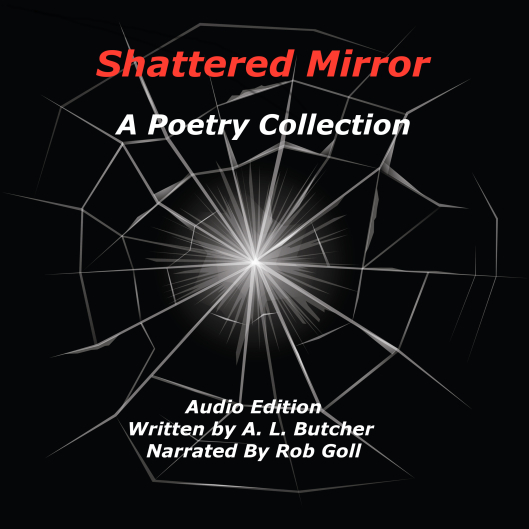
Title: Shattered Mirror – A Poetry Collection
Author: A.L. Butcher
Genre: Poetry
Book Blurb:
A short collection of poems dealing with politics, war and the vagaries of life.
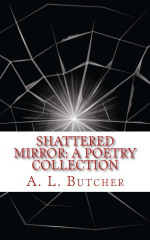
Excerpt:
The Glass Eyed Monster
© A. L. Butcher
The monster reaches,
To tear the poison sky.
The poet’s wife
Weeps tears of blood within her grave
A prophecy of Promethean fire.
The monster’s glittering eyes, multifaceted
Reflecting an eternal desolation.
Creatures within the steel belly,
Slaves to the god of commerce,
In the service of the damned.
A foul concrete skin
Mocks the soul of the mother of creation
Hideous spires, like claws through Heaven.
A modern monster
Born of the hand of man.
∽※∽
Buy Links:
Amazon US https://www.amazon.com/dp/B01IL6L8FK
Amazon UK https://www.amazon.co.uk/dp/B01IL6L8FK
Smashwords https://www.smashwords.com/books/view/651668
Createspace https://www.createspace.com/6444126
Now Available in Audio —
Amazon UK https://www.amazon.co.uk/Shattered-Mirror-A-Poetry-Collection/dp/B01LDBMYF8/
Amazon US https://www.amazon.com/Shattered-Mirror-A-Poetry-Collection/dp/B01LDBN2TK/

Author Biography: A. L. Butcher is the British author of the Light Beyond…
View original post 74 more words


September 14, 2016
The Persecution of the Wolves – Lucy Felthouse
Out Now – The Persecution of the Wolves by Lucy Felthouse (@cw1985) #PNR #thriller #shifter
Blurb:
Werewolf brothers Matthew and Isaac have lived in the peaceful village of Eyam, Derbyshire all their lives. The villagers know what happens every full moon, and have their reasons for keeping quiet. But this secrecy comes at a cost—the brothers can’t risk romantic entanglements.
Then, at the full moon, a sheep is slaughtered on Eyam Moor, by what could only be a large animal. Even the brothers’ staunchest supporters begin to have their doubts about who—or what—could have done it.
As the brothers fight to clear their names, things are complicated by unexpected opportunities to indulge their lust. Isaac is intrigued by a handsome newcomer to the village, and a vivacious visitor is happy to offer Matthew her all.
Can the men prove their innocence, or is their centuries-old secret about to be revealed to the outside world, bringing their carefully-crafted existence crashing down around their ears?
PLEASE NOTE: This book was previously published as Pack of Lies—the content has not changed. The novel also contains both M/F and M/M scenes.
Buy links: http://lucyfelthouse.co.uk/published-works/the-persecution-of-the-wolves/
Excerpt:
As Matthew and Isaac Adams opened the front door to their house, the telephone started ringing. Matthew sighed. “Typical. No rest for the wicked. I’ll answer it, you go and get ready for work.”
Isaac nodded and headed off to do as his brother advised. Matthew, the older of the two, walked toward the ringing phone and snatched it off the hook. Then, remembering that the person on the other end of the line would have no idea what a rough night he’d just had, he made the effort to inject some politeness into his tone.
“Hello? Adams residence.” Isaac had told him time and time again that the last part about the residence was old-fashioned, that people didn’t say that anymore, but Matthew couldn’t seem to shake it.
“Hello, Matthew? It’s Richard.” The village vicar’s voice, even though he’d only spoken four words, sounded strained, almost panicked. “You boys just get back?”
“Yeah, a moment ago. Why, what’s up?”
“I, uh… I got a call. A dead sheep has been found up on the moor. Not just dead. Mutilated. Like a wild animal attack.”
An unpleasant feeling wormed its way under Matthew’s skin and his stomach flipped. “Oh?” He paused, then figured he had nothing to gain by not saying the next words he wanted to. “You don’t think it was us?”
The vicar’s gasp was instant, one of genuine surprise. “Lord, no! Absolutely not. I just phoned to let you know and I was wondering if you’d come up there with me and take a look? You and Isaac are probably more qualified than anyone else in the village to tell what did this.”
“Isaac has to work, he just went to get ready. But yes, I’ll come up. I’ll let my brother know where I’m going, then I’ll be straight over. Are you at the rectory?”
“Yes. Okay, I’ll see you soon. Thanks, Matthew. Bye.”
“Goodbye.”
Matthew hung up the phone with another sigh. The horrible feeling that had crept under his skin and taken over his gut seemed as if it was there to stay, and it was never a good sign. The vicar’s news was surprising, yes, but he also had an inkling that it was going to spell trouble, or at the very least, inconvenience for him and his brother.
Pulling in a deep breath in an attempt to calm his jangling nerves, Matthew walked upstairs and toward his brother’s bedroom. The door was closed. He knocked. “You decent?”
“Yeah,” Isaac replied, “close enough.”
Stepping into the room, Matthew looked at his brother. He was half-dressed, ready for his shift at the doctor’s surgery, where he was a general practitioner. “Sorry to interrupt, mate, but that was Richard on the phone. They’ve found a mutilated sheep up on the moor, and he’s asked me to go with him to check it out.”
Isaac paused with one arm pushed into his shirtsleeve. “He doesn’t think—”
Matthew cut him off. “No. He was quite adamant about that. He just thought we’d be able to help figure out what did it. I explained that you’ve got to go to work, though. I’m going to head across there now and go up with him.”
“I could phone in, let them know I’ll be late.”
Matthew held up his hand. “There’s no need, brother. Relax. Just go to work and help the sick people. I’ll let you know what—if anything—I find out.”
Opening his mouth, then closing it again, Isaac seemed to have thought better of whatever he was going to say. He continued to dress. “All right, I will. But make sure you let me know what happens. Send me a text or something, and I’ll phone you as soon as I have a gap in between patients.”
Matthew grimaced. He hated texting. Hated mobile phones, actually. Technology was one of the things he disliked most about modern-day life, though he realized it was a necessary evil. It solved as many problems for him and his brother as it created, so he dealt with it as best he could. Fortunately, Isaac had always had an affinity with computers and phones, so he tutored Matthew.
“Yeah, all right. I’d better go and find my phone first then, eh?”
Smirking at his brother’s rolled eyes, he left the room and headed for his own bedroom, where he thought he’d left the device the previous night before he and Isaac had headed for the caves. Immediately spotting the mobile phone—which Isaac often made a point of telling him was akin to a brick—he grabbed it, stuffed it into his pocket, and made his way downstairs.
Retrieving his keys from the hook by the front door, he called up to his brother. “I’m going now, Isaac. I’ll see you after my shift at the pub. I’m working until closing time.”
“Okay. Don’t forget to keep me posted!”
“I won’t.” As if he could forget. The dead sheep was going to be a big thing, he just knew it. The vicar might not think he and his brother had anything to do with it, but some of the other villagers might. When there was no proof either way, just his and Isaac’s word, it was understandable, really. Since he and his brother changed into wolves every full moon, it was a natural conclusion to draw. Particularly since normal wolves had been extinct in England for over five hundred years.
*****
Author Bio:
Lucy Felthouse is the award-winning author of erotic romance novels Stately Pleasures (named in the top 5 of Cliterati.co.uk’s 100 Modern Erotic Classics That You’ve Never Heard Of, and an Amazon bestseller) and Eyes Wide Open (winner of the Love Romances Café’s Best Ménage Book 2015 award, and an Amazon bestseller). Including novels, short stories and novellas, she has over 140 publications to her name. She owns Erotica For All, and is one eighth of The Brit Babes. Find out more about her writing at http://lucyfelthouse.co.uk, or on Twitter and Facebook. You can also subscribe to her monthly newsletter at: http://eepurl.com/gMQb9
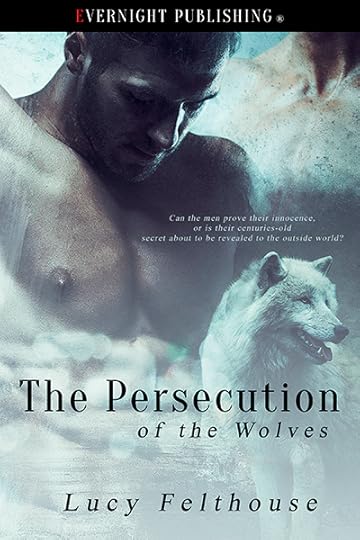
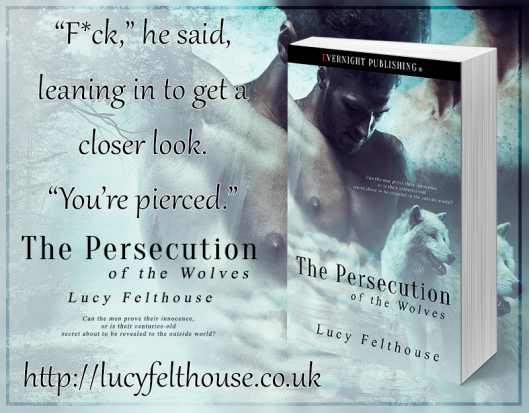


So, what’s it like being a Supporting Artist?
A slightly different style of art to my own – but a great opportunity to get local kids interested in TV and film work.
Local to the Bristol, UK area.
Being on a film set is an exciting, creative hub of activity. It can also be a long day. And it can be all of these things, all at the same time. It’s where the magic happens, but it isn’t where the journey starts.

The day starts at the Unit Base. It’s a bit like a communal waiting area – or a campsite. Here you will find all the trucks and trailers needed to facilitate a film production. The Costume and Make-up trucks are parked here along with the artists trailers and the ever important Catering Truck and Dining Bus.
It’s here that the cast and crew are fed, the actors get into costume, hair and make-up, and the day’s plans and schedules are discussed. All before the days filming starts.
For a Supporting Artist, or an SA as they are known, the Unit Base is where they spend the…
View original post 982 more words


Websites
For many years I have not bothered about having a website relying instead upon blogs to communicate with readers, authors and social media friends and contacts. However, increasingly I see sound advice suggesting a website really is a must for most authors. Nevertheless, my lack of resources have held me back as it appeared the […]
via Should Authors have a Website? — Life Memoirs


September 10, 2016
Shattered Mirror – Now in Audio
Hurrah! #Shatteredmirror #poetry
I’m delighted to announce the release of Shattered Mirror: A Poetry Collection in audio format. Narrated by Rob Goll – also my narrator for Tales of Erana: The Warrior’s Curse The Light Beyond the Storm Chronicles Book I and Perseid Press’ Heroika: The Dragon Eaters, the poetry collection is another fine example of this narrator’s versatility.
It’s short, less than 20 minutes, so ideal for a coffee-break, or commute listen. Filled with ‘gritty’ poems on politics, war, and the vagaries of life the collection is dark and somewhat dystopian.
Check it out here:
https://www.amazon.co.uk/Shattered-Mirror-A-Poetry-Collection/dp/B01LDBMYF8/
https://www.amazon.com/Shattered-Mirror-A-Poetry-Collection/dp/B01LDBN2TK/
Or from audible. If you buy from audible, don’t forget if you’re not a member you can join their membership scheme and pay monthly – to get a credit – usually this works out far cheaper than some of the more expensive books there.
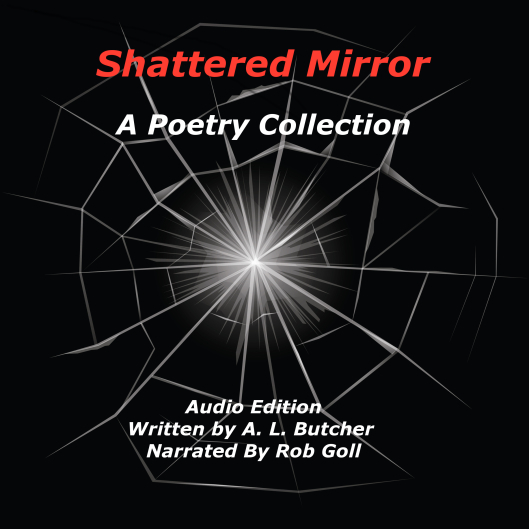


September 9, 2016
Returning Author – Tori Zigler
I’d like to welcome back author Victoria Zigler, or Tori, if you prefer.
Please recap briefly about your books:
Most of my books are fantasy stories, fairy tales, animal stories, or some combination of those, but I’ve also written books in other genres too. Regardless of genre though, my stories are aimed at children. I happen to know that some adults have really enjoyed them too, however, and I’m not just talking about adults who are family members or friends either.
Not all my books are children’s stories. I also write poetry, which is generally suitable for any age level, and has also been enjoyed by adults and children alike.
Plus, I have a fantasy story published in the “Wyrd Worlds II” anthology.
What has changed since you last visited? Tell us your news!
The last time I was interviewed on here, I was about to release the final book in my “Kero’s World” series, and had ”Vinnie The Vegetarian Zombie” due for release the following month. Since those titles came out, I’ve published another 14 titles. Two are poetry books, four are the books for my “Zeena Dragon Fae” series, and the others are more stand alone stories. My most recent releases are a poetry collection called “The Ocean’s Lullaby And Other Poems” which was released in early July, and my first ever science fiction story “Jeffrey The Orange Alien” which was released in late August.
Also, at the time my last interview went live, I was only doing my books as eBooks, but now I have them all available as paperbacks too. The eBooks are still published via Smashwords, and distributed to all eBook retailers Smashwords distributes to (such as Barnes & Noble, Apple iBooks, Kobo, etc) so are available in multiple formats to work across a variety of eReaders and other devices. The paperbacks are published via CreateSpace, and distributed to all the retailers CreateSpace distributes to (such as Amazon, Barnes & Noble, etc).
Do you think indie/self-published authors are viewed differently to traditionally published authors? Why do you think this might be?
Yes, I do. For some reason, people got it in to their heads that self-published translated in to “not good enough to be published” – despite the fact that there are many reasons why a traditional publisher might not want to publish something, and most of those reasons have nothing to do with the quality of the work in question. Unfortunately, the fact that some self-published authors put their work out in to the world before it’s really ready (in other words, before it’s been properly edited, proof read, etc) has led to some poor quality work being on the market, which has only served to encourage this view. Opinions are starting to be swayed by some self-published authors who have managed to make it big, and show the world that a self-published book can be as good as a traditionally published one for quality, but I think it’s going to be a while before everyone is willing to accept this new viewpoint – if they ever do.
Do you read work by self-published authors?
Yes, I do. I also accept books from them in exchange for posting a review. Personally, I don’t care how an author has published their work. If it sounds like a book I’ll enjoy, I’ll read it whether it’s self-published or traditionally published. I use the same criteria for deciding if I want to read a book regardless of the publication method, and don’t give the method of publication a single thought when rating or reviewing a book.
What are your opinions about authors commenting on reviews? How important are reviews?
Reviews are very important. They’re useful for authors sometimes, because some contain helpful information on what an author could have done to improve the story, which can potentially help to improve the author’s next piece of writing. However, reviews are mostly important for other potential readers, since they tell those readers that someone has read the book, and give some insight in to what they thought about it.
Authors can “like” a review, or thank a reviewer for a good review, if they really insist on interacting with reviews. But that’s it. An author should NEVER comment on negative reviews, especially not to disagree with the reviewer. By all means read them, and privately take note of any constructive criticism contained in them, but don’t comment.
What are your views on authors reviewing other authors?
I don’t see anything wrong with author’s reviewing work by other authors. I’m an author, but I was a reader first, and the same is true for all authors, which means there’s no reason an author can’t assume the role of an average reader while enjoying the work of another author. Plus, it’s a bit silly to exclude someone from being allowed to review a book just because they’ve written one of their own. As long as an author leaves an honest review, and isn’t leaving a good review on the work of another author just in hopes of getting one in return, or leaving a bad review because they got a bad review from that author, there’s no problem. I mean, there’s nothing wrong with author’s doing review swaps, as long as they’re done with the understanding that the review should be an honest one based on your opinion of the book in question, rather than one based on how good or bad the review the other author gave you was, if you know what I mean.
I quite often review books, and rate those I don’t review. Whether I’ve just picked up a book randomly, or have been given a copy by the author or publisher (or both, in the case of most self-published books) in exchange for a review, I always try to be honest in my reviews and ratings, whether the author has reviewed my book(s) or not, and regardless of how good or bad any review the author left for me was.
Looking back what do you wish you’d known when you started writing?
Since I started writing as soon as I learned how to, I don’t think there’s anything. Honestly, I don’t remember much from the time before I started writing for pleasure, since I learned to read and write early, and was quick to learn the pleasure of writing. Plus, I think you learn more about writing by actually doing it, and never stop learning.
Although, if you mean before I started writing professionally – in other words, before I started publishing my books back in 2012 – the answer is different. The thing I wish I’d known then was that an already established online presence would help my writing career, rather than hinder it. I’m not really sure why I got it in to my head that continuing to blog would take too much time away from my writing. After all, I’d been blogging regularly – usually at least once a day – for about six years when I published my first book, and had been doing plenty of writing in that time, even if I wasn’t mentioning most of it on my blog. But I became convinced for some reason that if I wanted to make a career out of writing, I should stop blogging publicly. I still kept my blog, and posted a few things on it with it set to “private” just for my own benefit, but I stopped allowing others to see my posts, and stopped visiting the blogs of my friends. Huge mistake! Not only did it cost me several really good friends – friends who I miss, because they were a great group of people – but it also meant I lost several potential opportunities for sales, as well as potential people who might have helped me to spread the word about my books. I only had my blog private for about a year, but that year was enough time for me to lose touch with most of the people who had been regular readers and commenters on my blog, most of whom still don’t appear to realize I’m blogging again, even though I’ve been doing so for around three years, and am doing so on my original blog, which I’ve now made public again. I’m trying to reconnect with as many of the people as I can. Not just for the potential networking opportunities, but also because I miss them. Unfortunately, success on this front has been limited. In short, the choice to stop blogging publicly was a bad one, which I regret, both from a personal and professional point of view, and if I’d known then what I know now, I never would have even considered stepping away from the blogging world.
Do you have any unpublished novels under the bed/in a folder anywhere which you thought were awesome at the time, but now will never see the light of day?
Nope. I mean, I did have some stories that were… Well, let’s just say they needed a lot of work. I also had several poems that needed a little work. But I hated to see them go to waste, so I took the time to rewrite them, and later edited and published them. All I have unpublished now – that I have copies of, anyway – are poems I’ve written since my last poetry collection was published (which will go in my next one) and the stories I’m in the process of writing. There were probably others that I didn’t get to re-write, but no copies of them exist anymore, since they’ve been lost in moves and computer crashes, and I don’t think it counts if the only record of them is a vague memory I have of having written other stories and poems.
How have you progressed as a writer since you started?
Since, as I said when answering a previous question, I was really young when I started writing, I would hope I’ve progressed a lot. I know my grammar skills have improved, I’ve learned more about sentence structure, I’ve learned about different poetry styles and tried a couple of them out, etc… All the stuff you learn as you progress with education. Beyond that, I’ve learned not to assume that because I know something my reader will. In my early stories, I often assumed I didn’t need to describe things because I knew what they were, but I now know descriptions are important, and not everyone will recognize even some everyday items I take for granted, since different places have different names for some of them, and others aren’t actually available in other countries. Luckily, I learned about this before starting to publish, so have done my best to take this in to consideration in my re-writes, as well as in my newer stories.
What aspect of writing do you least enjoy? Why might this be?
When it comes to the actual writing process, there’s nothing I don’t enjoy. I enjoy research too, since I enjoy learning about different things, and if it wasn’t a topic I was interested in I wouldn’t be writing about it, which would mean I wouldn’t be researching it. The only part about being an author I don’t enjoy very much is the marketing. Don’t get me wrong, I love connecting with my readers on social media and such, but I hate the part where I have to spend ages doing the posts that are essentially just different ways of saying “please buy my book.” Unfortunately, since I want to be able to share my stories with the world, I have to do that part as well as the writing and research. I try to focus more on finding interesting things to share and post about, as well as interacting with others in places where I might get sales, rather than actually posting “please buy my book” type messages, which makes the marketing stuff a bit more fun. It’s probably more fun for potential readers that way too. At least, I hope it is.
Most authors like to read, what have you recently finished reading? Did you enjoy it?
The last book I finished reading was a children’s story by a fellow self-published author. The book’s title was “Oh Grandad!” and the author’s name was Stephanie Dagg. It was, as I said in the short review I put up for it on Smashwords, an amusing and fun read. Actually, all the stories I’ve read by Stephanie Dagg have been entertaining and enjoyable reads.
Do you have a favourite movie?
“Practical Magic” and “The Craft” are my favourite movies. However, I’ve been a bit obsessed with the movie “Frozen” since I first saw it towards the end of last year, so I might have to add that one as a third favourite from now on.
What are your plans for the future? When will we see your next book? Tell us about it.
I’ve got my first ever historical fiction story due out in October, which is a story based on the Battle Of Hastings. I’ve already written several new poems towards my next poetry collection, so I’ll hopefully have a new poetry collection out next year too. I’m also working on a couple of other stories, one of which is a Christmas story involving a giant, the others I can’t tell you more about just yet, because I don’t know much myself; I’m a pantser, and I’ve not long started working on them, so right now I don’t know exactly where they’re going, nor even exactly which genre they’ll all be in as it stands at the moment. Like I said, I rarely know much at this stage myself. One time, for example, I had a story I thought was going to be a mystery, only for it to turn out to be a fantasy. Anyway, I’m not yet certain what the future holds beyond that.
If you had to pick five books to have on an island which five would you pick?
I’d rather not be limited on my choice of books, but if I had to pick, I’d want “A Little Princess” by Frances Hodgeson Burnett, “Matilda” by Roald Dahl, “Strings” by David Estes, “The Complete Sherlock Holmes” by Sir Arthur Conan Doyle, and something that will be useful for telling me how to survive while waiting to be rescued. Either those five books, or just that last one, plus my Kindle and some kind of solar powered charger, that way I could have the time to read all the books waiting on it for me to read them.
How do you think fantasy is portrayed in the media?
Though it’s not always the case, for the most part, from what I’ve read and watched, fantasy is generally portrayed as being a mostly male dominated genre, with vicious dragons and weak women making regular appearances, while mighty men rush in to save the day. I want to see more vegetarian dragons and strong female characters, maybe with some men needing to be the ones rescued for a change. Not just in children’s books and movies, but in general.
Links etc.
Website: http://www.zigler.co.uk
Goodreads: http://www.goodreads.com/toriz
Facebook author page: http://www.facebook.com/pages/Victoria-Zigler/424999294215717
Twitter: http://www.twitter.com/victoriazigler
Blog: http://ziglernews.blogspot.co.uk
